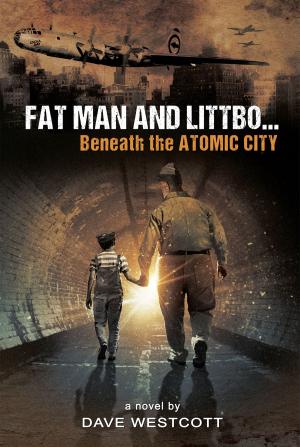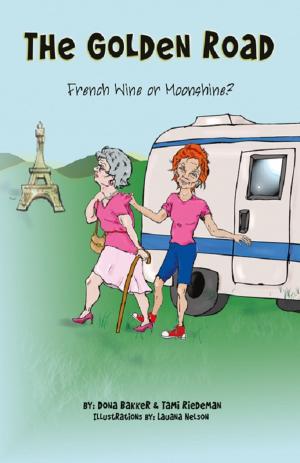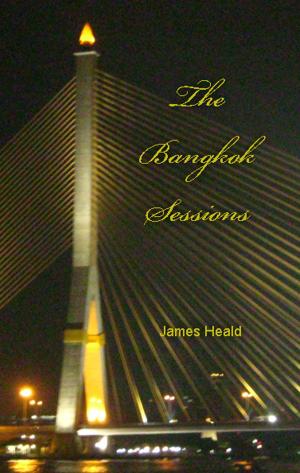| Author: | James A. Clapp | ISBN: | 9781631927942 |
| Publisher: | Bookbaby | Publication: | April 17, 2015 |
| Imprint: | Language: | English |
| Author: | James A. Clapp |
| ISBN: | 9781631927942 |
| Publisher: | Bookbaby |
| Publication: | April 17, 2015 |
| Imprint: | |
| Language: | English |
FROM THE AUTHOR'S INTRODUCTION: The present volume grew out of the development of a writing course I designed for travelers and aspirant travel writers built around what I refer to as “travel journaling,” and is intended for future iterations of that course by myself as well as other teachers and instructors teaching courses about turning travel and living abroad experiences into both personal memoir and professional publication. While it is not intended directly as a “text” or “manual” for travel writing and memoir, it is an adjunct to those purposes, and illustration and a compendium of examples of subjects and styles useful for instructional purposes. Accordingly, since it is derived from the contents of a travel journal itself it is maintained somewhat in the form of a travel journal itself. It intentionally maintains different writing styles and “voices,” with some chapters that are highly personal in tone, others historical or somewhat “academic,” and others illustrative of the writing process. As with all writing it is firstly about the subject, but this book, while it exposes the author’s personal interests and points of view about Paris—it is appropriate here to indicate that he is an “urbanist,” and by training an urban planner—it is also about the experience of that city as a foreigner, and experience that combines the “pre-experience” of literature, film and art (in particular painting) with subsequent direct encounter, as tourist, worker, or temporary resident. This book is perhaps best described as a chronicle of my experience with this great city. It is not a guidebook, not a history, and not fully a memoir, although it is informed by and contains some features of all. It grew primarily from notebooks I kept over several trips to Paris as a professor-escort on university educational travel programs in the 1970s and 80s, and two periods during which I was fortunate to live and work (as a visiting Professor Associé at the University of Paris) in the city. During these times I shared Paris with some very special women in my life, formed friendships, had fascinating personal encounters, and made self-discoveries, all while, and in consequence of, coming in thrall of Paris “herself.” Everyone’s Paris memory is sui generis, a product of a unique nexus of personal time in “Paris time.” So this is my Paris, or at least what was my Paris at not only mostly during the occasion of the city’s 200-year anniversary of its Revolution, but also experienced through a time of momentous personal change in my life. I could no more return to find Paris as it was in the Bicentennaire as I would be able to spy that forty-nine year-old version of myself waiting for the train on the opposite platform at Metro Gobelins. Only in my notes, souvenirs and the reverie they evoke, and in these pages, do they exist, their pleasures, the tristesse, too, their time and place. This book does not purport to be comprehensive about the French, or the Parisians, for which I have neither sufficient nor lengthy experience, and so that is better left to those who have. It is confined in time and geography, if not entirely bounded, by the several rather brief periods I have spent in France, and is (to borrow the sense of their own term) “impressionistic” rather than comprehensive or analytical. So in this book I am looking back, an à la recherche du temps perdu of a minor sort (to borrow from a late Parisian), but through a prism of other times and urban experiences. By way not only of visitation, but also readings, movies, art, Paris has been a recurrent inspiration. Because I am an urbanist, Paris has confirmed for me that cities are far more than physical settlements, but expressions of human hopes and potentialities (sometimes marred by greed and stupidity). Cities are our greatest and most complex human invention, and in exceptional cases, like Paris, a work of art.
FROM THE AUTHOR'S INTRODUCTION: The present volume grew out of the development of a writing course I designed for travelers and aspirant travel writers built around what I refer to as “travel journaling,” and is intended for future iterations of that course by myself as well as other teachers and instructors teaching courses about turning travel and living abroad experiences into both personal memoir and professional publication. While it is not intended directly as a “text” or “manual” for travel writing and memoir, it is an adjunct to those purposes, and illustration and a compendium of examples of subjects and styles useful for instructional purposes. Accordingly, since it is derived from the contents of a travel journal itself it is maintained somewhat in the form of a travel journal itself. It intentionally maintains different writing styles and “voices,” with some chapters that are highly personal in tone, others historical or somewhat “academic,” and others illustrative of the writing process. As with all writing it is firstly about the subject, but this book, while it exposes the author’s personal interests and points of view about Paris—it is appropriate here to indicate that he is an “urbanist,” and by training an urban planner—it is also about the experience of that city as a foreigner, and experience that combines the “pre-experience” of literature, film and art (in particular painting) with subsequent direct encounter, as tourist, worker, or temporary resident. This book is perhaps best described as a chronicle of my experience with this great city. It is not a guidebook, not a history, and not fully a memoir, although it is informed by and contains some features of all. It grew primarily from notebooks I kept over several trips to Paris as a professor-escort on university educational travel programs in the 1970s and 80s, and two periods during which I was fortunate to live and work (as a visiting Professor Associé at the University of Paris) in the city. During these times I shared Paris with some very special women in my life, formed friendships, had fascinating personal encounters, and made self-discoveries, all while, and in consequence of, coming in thrall of Paris “herself.” Everyone’s Paris memory is sui generis, a product of a unique nexus of personal time in “Paris time.” So this is my Paris, or at least what was my Paris at not only mostly during the occasion of the city’s 200-year anniversary of its Revolution, but also experienced through a time of momentous personal change in my life. I could no more return to find Paris as it was in the Bicentennaire as I would be able to spy that forty-nine year-old version of myself waiting for the train on the opposite platform at Metro Gobelins. Only in my notes, souvenirs and the reverie they evoke, and in these pages, do they exist, their pleasures, the tristesse, too, their time and place. This book does not purport to be comprehensive about the French, or the Parisians, for which I have neither sufficient nor lengthy experience, and so that is better left to those who have. It is confined in time and geography, if not entirely bounded, by the several rather brief periods I have spent in France, and is (to borrow the sense of their own term) “impressionistic” rather than comprehensive or analytical. So in this book I am looking back, an à la recherche du temps perdu of a minor sort (to borrow from a late Parisian), but through a prism of other times and urban experiences. By way not only of visitation, but also readings, movies, art, Paris has been a recurrent inspiration. Because I am an urbanist, Paris has confirmed for me that cities are far more than physical settlements, but expressions of human hopes and potentialities (sometimes marred by greed and stupidity). Cities are our greatest and most complex human invention, and in exceptional cases, like Paris, a work of art.















